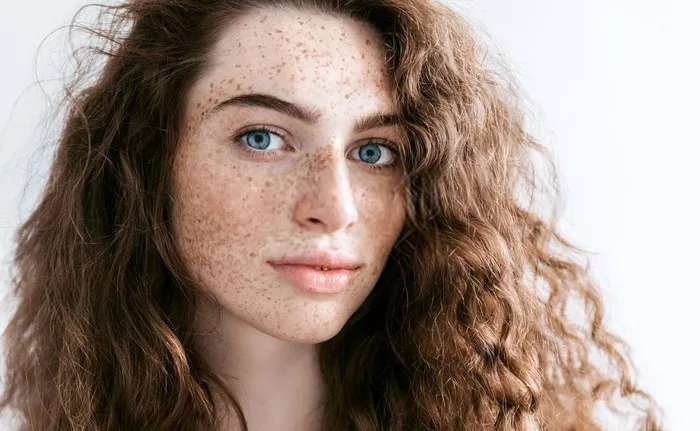Freckles are small, flat, and dark spots on the skin that are caused by an overproduction of melanin. While freckles are harmless and do not require treatment, many people wonder if they will go away with age. In this article, we will explore the causes of freckles, the different types of freckles, and whether or not freckles go away with age.
Causes of Freckles
Freckles are caused by an overproduction of melanin, which is the pigment that gives our skin color. When the skin is exposed to the sun, the body produces more melanin to protect the skin from UV radiation. This can cause freckles to appear on the skin, particularly in areas that are frequently exposed to the sun, such as the face, arms, and hands.
In addition to sun exposure, genetics can also play a role in the development of freckles. People with fair skin, red or blonde hair, and blue or green eyes are more likely to develop freckles than those with darker skin and eyes.
Types of Freckles
There are two main types of freckles: ephelides and lentigines.
Ephelides are the most common type of freckles and are usually found on people with fair skin. They are small, flat, and light brown in color. Ephelides tend to fade in the winter when the skin is less exposed to the sun, but they can become more pronounced during the summer months.
Lentigines are larger and darker than ephelides and are usually found on people with darker skin. They are not affected by sun exposure and do not fade in the winter.
Do Freckles Go Away with Age?
While freckles can fade over time, they do not usually go away completely with age. Ephelides tend to become less pronounced as we get older, but they can still be visible on the skin. Lentigines, on the other hand, tend to remain on the skin and may even become more pronounced with age.
Prevention and Treatment
Freckles are harmless and do not require treatment, but there are steps that can be taken to prevent their development and minimize their appearance. These can include:
Protecting the skin from the sun: Wearing sunscreen and protective clothing can help prevent sun damage to the skin, which can cause freckles to appear.
Avoiding tanning beds: Tanning beds can cause damage to the skin and increase the risk of freckles and other skin conditions.
Using topical treatments: Topical treatments, such as retinoids and hydroquinone, can help reduce the appearance of freckles by slowing down the production of melanin.
Laser treatments: Laser treatments can help reduce the appearance of freckles by targeting the melanin in the skin.
Conclusion
Freckles are small, flat, and dark spots on the skin that are caused by an overproduction of melanin. While freckles are harmless and do not require treatment, many people wonder if they will go away with age. While ephelides may become less pronounced as we get older, freckles do not usually go away completely with age. Preventive measures can include protecting the skin from the sun and avoiding tanning beds, while treatment options can include topical treatments and laser treatments. A qualified dermatologist can help determine the most appropriate treatment options for each individual patient.
FAQs
1. Do freckles go away naturally?
Freckles are typically caused by an increase in melanin production due to sun exposure. While freckles may fade somewhat during periods of reduced sun exposure, such as during the winter months, they often reappear with renewed sun exposure. Freckles are usually not permanent and may become less noticeable over time as individuals age.
2. Are some freckles permanent?
While most freckles are temporary and may fade over time, some freckles, particularly those present from childhood or caused by genetic factors, may be more persistent and long-lasting. These freckles may remain visible throughout adulthood, although their intensity and appearance may change over time.
3. Do freckles make you look younger?
Freckles are often associated with a youthful appearance, as they are commonly seen in children and adolescents. Some individuals perceive freckles as a charming and youthful feature that adds character to the face. However, perceptions of attractiveness and youthfulness vary among individuals and cultures.
4. How do I keep my freckles from fading?
Preventing freckles from fading entirely may be challenging, as they are primarily influenced by genetics and sun exposure. However, you can help maintain the appearance of freckles by avoiding prolonged sun exposure, wearing sunscreen daily, seeking shade, and wearing protective clothing, such as hats and sunglasses, when outdoors. Additionally, using skincare products containing antioxidants and ingredients that help regulate melanin production may help preserve freckles and prevent excessive fading.


